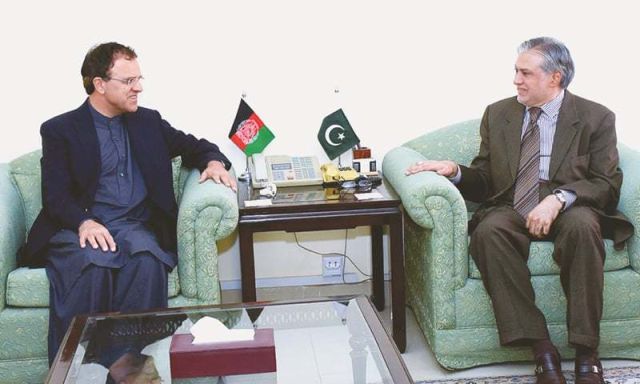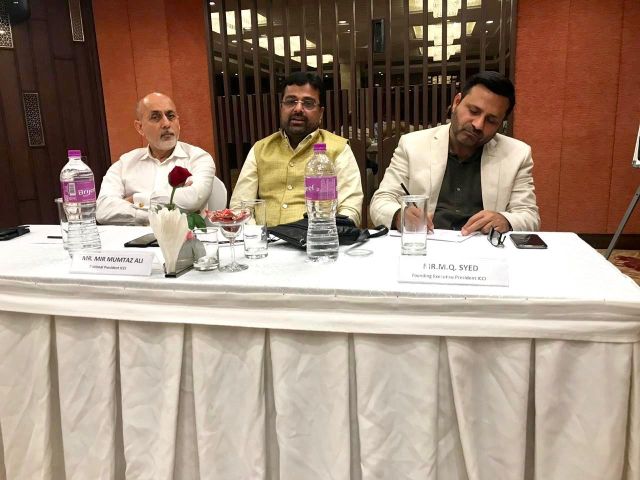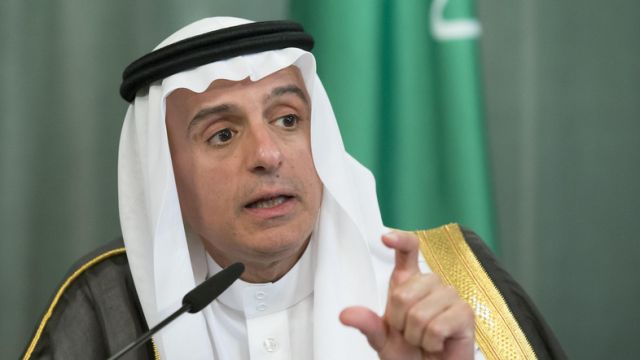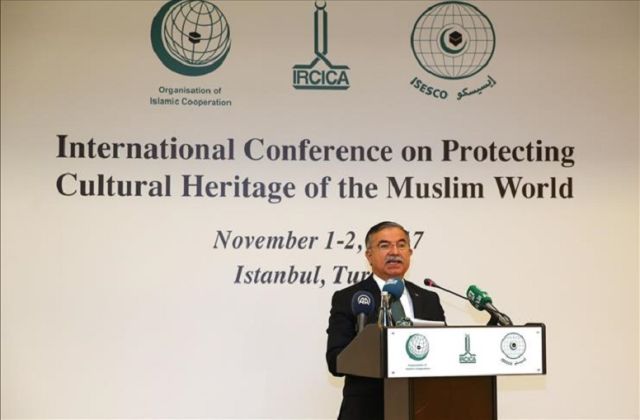
by admin | May 25, 2021 | Muslim World, Opinions
 By Saeed Naqvi,
By Saeed Naqvi,
“Problems” like Afghanistan, even Iran, created in the thick of the Cold War, are now in the lap of a declining sole superpower in a withdrawal mode. Since I was witness to both, the Saur and Islamic revolutions, I thought the New Year might be a good occasion to ferret out material from my notebook focusing on the Genesis. To synchronise with the arrival of 2019, let us revert to New Year’s Day, 40 years ago, 1978, when President Jimmy Carter accompanied by his National Security Adviser Zbigniew Brzezinski arrived in New Delhi. Morarji Desai was Prime Minister and Atal Bihari Vajpayee the Minister for External Affairs.
The two events need not be bound together by conspiracy theories but within four months of the Carter visit, the Saur revolution on April 28 brought Communists to power in Kabul. The next morning my story was banner headlines with the Indian Express. That Communists had taken over in Afghanistan. It was a world scoop. And I owed it to one impeccable source.
A year after Carter’s New Delhi visit, the Shah was dethroned by the Ayatullahs in Tehran. The youth in the vanguard of the revolution laid siege to US embassy from November 4, 1979, for 444 days until January 20, 1981. I still remember the tears of relief in Carter’s eyes as he embraced Vice President Walter Mondale when the hostages were released. The Carter presidency was consumed by Iran. Soon murals of Uncle Sam went up with cryptic captions: “Shaitaan e Buzurg” or Senior Satan. These incidents continued to cast a long shadow on the West’s fluctuating relations with Iran even during the bizarre Iran-contra deal when Iran, Israel and the US were in one amazing scrum.
The Shah’s notorious Savak agency, never secretive with the CIA, planned to eliminate the Left which was gaining in influence around then Afghan President Mohammad Daud who had deposed King Zahir Shah in a coup in 1973. Thereafter, the King lived in exile, in Rome, until the post 9/11 US occupation when he returned as Father of the Nation.
Two communist parties of Afghanistan, Khalq and Parchan, corresponded more or less to India’s CPI and CPI-M. I was able to attend the historic press conference addressed by Afghanistan’s head of the government after the coup, Noor Mohammad Taraki. He was leader of the Khalq faction. It was on the margins of this occasion, where well-informed middle level communist leaders were present, I picked up bits and pieces of how the coup came about.
On April 17, Mir Akbar Khyber, a trade union leader attached to the Parcham faction, was murdered, exposing prematurely the plot to eliminate the Left. Thus alerted, Communist cells in the army and the air force led by Aslam Watanjar and Abdul Qadir were activated. Reinforcement entered the palace and killed Daud. Coming of the Communists to power paved the way for the Soviet invasion in December 1979.
Brzezinski was back in the region, this time in Pakistan, peering over the parapets into Afghanistan, plotting the world’s largest programme of breeding Salafists, arming them to the hilt, to wage war against Soviet occupation. After this war had been won, spare ultra-Islamic jehadis, their morale boosted by having helped defeat a super power, flexed their muscles in Kashmir, Cairo, Algeria where the West blundered by helping the army upturn the result of the 1991 election which brought the Islamists Salvation Front in the lead.
The cancellation of election results bred more Islamism. Another complicating factor has not been mentioned yet. Since 1990, the US egged on by UNICAL, the gas giant, has developed a major interest in TAPI, the Turkmenistan, Afghanistan, Pakistan, India Pipeline. Brzezinski shrugged his shoulders: We wanted to bring down the Soviet Union; “we were not worried about some stirred up Muslims”.
I must put it down to lack of hard work on my part but the beginnings of the Islamic revolution have remained something of a haze. Was Ayatullah’s first instinct to give the new regime a civilian face in Iran? A few days after the revolution, journalists like me were directed to meet the suave Prime Minister, Mehdi Bazargan. In form, feature, sartorial detail, he was the very antithesis of the Ayatullah. He looked very European in a bow-tie and spoke English like a French grandee.
That he lasted barely nine months in that post was because of his strong opposition to the occupation of the American embassy and the taking of US hostages. Abolhassan Banisadr, who escorted Ayatullah Khomeini from exile in Neauphle-le-Chateau, 30 km from Paris, was made President. He was exiled because of internal conspiracies.
From the holy city of Qom came stories of the civilians plotting to oust the Ayatullahs who required a civilian front because a true blue Islamic revolution cannot be deemed to have taken place in the absence of the 12th Imam whose appearance will impart legitimacy to the revolution. The concept of the awaited messiah is common to all Abrahamic religions.
Various interests jump into a revolutionary situation to extract advantage. Just the other day, Marine Le Pen, with her fascist agenda, tried to move in sideways into the yellow vest agitation in Paris. The confusing chaos caused a strong wing of the Ayatullahs dust up the theory of Vali Faqih, or the intermediate Imam who can guide the revolution pending the appearance of the Mehdi or Messiah.
Like the Mujahideen in Afghanistan, one use of the Islamic revolution was to be the bulwark against the Soviets. But for them to play this role, the pro-Soviet Tudeh party, which had played a role in the success of the revolution, had to pay a price. They were no longer underground, as they had been during the Shah, and easy targets to be eliminated. A more radical Mujahideen-e-Khalq, crossed over to Iraq where Saddam Hussain nursed them as an anti-Ayatullah force.
If the CIA had a hand in eliminating the Communists, well, by the same token they have helped consolidate the Ayatullahs. What joy in this outcome?
(Saeed Naqvi is a commentator on political and diplomatic affairs. The views expressed are personal. He can be reached on saeednaqvi@hotmail.com)
—IANS

by admin | May 25, 2021 | Corporate, Corporate Buzz, News
 Meeting of ICCI with Top Ziyarat Tour Operators of Mumbai
Meeting of ICCI with Top Ziyarat Tour Operators of Mumbai
Chaired by : Mir Mumtaz Ali, President, M Q Syed ( Syed Quaim) Founding Director/Executive President, Iqbal M Saiyed, Chapter Chairman – Maharashtra
Some of the Prominent Tours in attendance were;
1. Western Travels – Mr. Mahdi
2. As-Seraat – Mr. Mohsin Muni & Mr. Fazal
3. Al-Mehdi – Mr. Aijaz & Mr. Salim
4. Al Shaya Nasser – Mr. Muzammil
5. Khidmate Zawwar – Mr. Abbas Lokhandwala
6. Atlas Tours – Mr. Ali Abbas
7. Razz Enterprise – Mr. Suleman Vimani
Tour Operators are happy to hear that Astan is looking forward to promote Iran Religious and General tourism
Issues highlighted by Operators:
Indian Food India eats spicy food, need either own chef with kitchenette by Astan or Indian food in hotels provided by Astan
Flights Not much Options, also Iran Air not a preferred Airlines.
Visa Ziyaraat visa is often rejected for Sunni’s and Tourism VISA is not given to Non Muslims by Mumbai Consulate. Many non Muslims specially Parsis wish to often go to Iran for Tourism.

Recommendation to Astaan by ICCI
1 -Iranian Tour destinations to be properly highlighted & marketed well
*2 -Visa issuances to be more easy and transparent
Indian food a big priority*
3 -Tour packages required by Astan
4 – More Airlines options to be available

by admin | May 25, 2021 | News, Politics
 New Delhi : Visiting Jordanian King Abdullah II on Thursday said that the global war against terror was not a fight between different religions but between moderates and extremists.
New Delhi : Visiting Jordanian King Abdullah II on Thursday said that the global war against terror was not a fight between different religions but between moderates and extremists.
“Today’s global war against terror is not a fight between different religions or people. It is between moderates of all faiths and communities against extremism, hate and violence,” the King said while addressing a conference on ‘Islamic Heritage: Promoting Understanding and Moderation’ here in the presence of Prime Minister Narendra Modi.
“What is heard in the news and what is shown about religion is what separates people,” he said.
He added that around the world, suspicions are inflamed by what different groups don’t know about others.
“Such ideologies of hate distort the word of God — to stir up conflicts and justify crimes and terror.
“We need to take these things seriously…they should never be allowed to distract us from the truth that faith should draw humanity together.”
He said faith inspires countries like India and Jordan where different religious and ethnic groups have lived together.
“It is faith that brings together different civilisations together. Compassion, mercy, tolerance are values shared by billions of Muslims and non Muslims around the world.”
“These values put us together to act for our coming future,” he said.
The Jordanian King arrived here on Tuesday on a three-day state visit. Earlier this month, King Abdullah had hosted Modi in Amman.
—IANS

by admin | May 25, 2021 | Muslim World

Saudi Arabian Foreign Minister Adel bin Ahmed al-Jubeir
Riyadh : Saudi Arabian Foreign Minister Adel bin Ahmed al-Jubeir said that the country has zero tolerance towards corruption and extremism and dismissed speculation that the shock arrests of princes and ministers amounted to a grab of power by Crown Prince Mohammed bin Salman, the media reported.
Saudi Arabia has a “zero tolerance policy on terrorism” and now, also “a zero tolerance policy on corruption,” al-Jubeir told CNN in an interview on Monday night.
“I assure you that the Kingdom of Saudi Arabia takes very, very seriously the issue of corruption, waste, and mismanagement.
“There is a reason why everybody was brought in or detained and will be questioned and will be investigated and these have to do with the commission. I’m sure when the investigations are complete that people will know what the reasons are.”
Al-Jubeir said the arrests made on November 4 were in line with Saudi Arabia’s plans to diversify the economy and modernise society by 2030 and achieve economic growth, rejecting suggestions that the detentions could put off potential investors.
“We want investors to have confidence in our system… We want companies to know that when they come to compete in Saudi Arabia they will compete fair and square with any other company and not be subject to people using their influence or their position in order to extract better deals.”
The arrests were made following the formation of an anti-corruption committee headed by the Crown Prince.
The detainees include 11 Saudi princes and several other ministers.
In regard to the failed ballistic missile attack on Riyadh’s international airport also on November 4, al-Jubeir told CNN that it was as an “act of war by Iran” and will “respond in the appropriate manner at the appropriate time”.
Yemen’s Houthi rebels have claimed responsibility for firing the projectile which was intercepted by Saudi defence forces before it hit the ground.
“It was an Iranian missile, launched by Hezbollah, from territory occupied by the Houthis in Yemen.
“We see this as an act of war… Iran cannot lob missiles at Saudi cities and towns and expect us not to take steps,” he told CNN.
“This is a very, very hostile act… We have been extending our hand to Iran since 1979 in friendship, and what we get back is death and destruction.”
On Monday, Saudi Arabia closed its ports and borders with Yemen to stop Iranian penetration into the country.
He insisted however that humanitarian aid would still make it through to the millions of people suffering from malnutrition and cholera brought on by the years-long war between the Houthi rebels and Saudi Arabia.
“Our objective is to increase the flow of humanitarian assistance in Yemen, but do it in such a way that Iran and its militias and its proxies cannot use that access in order to smuggle weapons and technology that can be re-assembled into missiles in Yemen, that will then be used against us and against the Yemeni people,” the minister added.
—IANS

by admin | May 25, 2021 | Business Summit, Events, Muslim World, Social Round-up
 Istanbul : The activities of the International Conference on Protecting Cultural Heritage of the Muslim World kicked off Wednesday in the Turkish city of Istanbul.
Istanbul : The activities of the International Conference on Protecting Cultural Heritage of the Muslim World kicked off Wednesday in the Turkish city of Istanbul.
The two-day event is being held under the sponsorship of the Istanbul-based OIC Research Centre for Islamic History, Art and Culture (IRCICA) and the Rabat-based Islamic Educational, Scientific and Cultural Organization (ISESCO).
“Cultural heritage is one of the most important human values,” said Turkish Education Minister Ismet Yilmaz in a speech at the opening ceremony of the conference.
“The transfer of this legacy to future generations is an indispensable guide and condition to prove humanity’s progress,” he added, pointing out that Istanbul is one of the most important global cultural centers.
Yilmaz called on the Islamic world to make further efforts to preserve the cultural heritage and protect it from the ongoing wars in a number of countries in the region.
—AB/OIC-UNA






